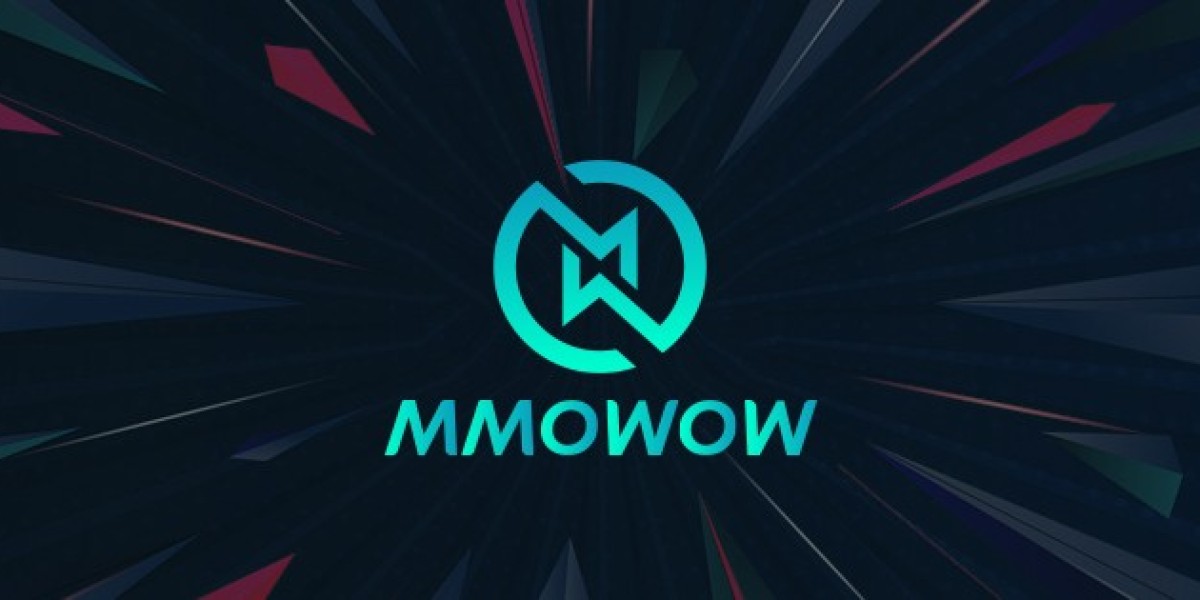The bispecific antibody market is projected to achieve a remarkable growth rate over the next decade, with estimates suggesting the market will reach USD 66.23 billion by 2031. This growth is being driven by groundbreaking advancements in immunotherapy, particularly in the treatment of cancer and other chronic diseases, as well as increasing investment in biopharmaceutical research. According to a comprehensive report by Kings Research, the bispecific antibody market is expected to see a surge in demand as healthcare providers look to improve treatment outcomes and expand the therapeutic potential of these versatile agents.
Market Overview
Bispecific antibodies are an innovative class of engineered proteins that can bind to two different antigens simultaneously, providing targeted therapeutic effects. This dual-targeting capability makes them highly effective in addressing complex diseases, including various forms of cancer, autoimmune disorders, and infectious diseases. Unlike traditional monoclonal antibodies, bispecific antibodies can engage multiple targets, which can improve therapeutic efficacy and reduce the risk of resistance.
The bispecific antibody market has witnessed substantial growth over the past few years due to the rising prevalence of cancer and the increasing adoption of immunotherapy as a frontline treatment option. In particular, bispecific antibodies have shown significant promise in treating hematological malignancies, such as lymphoma and leukemia, where they can simultaneously engage tumor cells and immune cells to enhance the body's natural ability to fight cancer.
The global Bispecific Antibody Market size was valued at USD 7.54 billion in 2023 and is projected to grow from USD 9.82 billion in 2024 to USD 66.23 billion by 2031, exhibiting a CAGR of 31.35% during the forecast period. The market is witnessing rapid growth, mainly due to the rising focus on personalized medicine and the development of novel therapeutic strategies.
Key Drivers of Market Growth
Rising Incidence of Cancer and Chronic Diseases
One of the primary drivers of the bispecific antibody market is the rising incidence of cancer and other chronic diseases worldwide. According to the World Health Organization (WHO), cancer remains a leading cause of death globally, with an estimated 10 million deaths in 2020 alone. The increasing burden of cancer, coupled with the growing demand for more effective and targeted therapies, is fueling the adoption of bispecific antibodies in oncology.Additionally, the prevalence of chronic diseases, such as autoimmune disorders and infectious diseases, is on the rise, further driving the need for innovative therapeutic solutions. Bispecific antibodies offer a promising approach to address these complex diseases by targeting multiple pathways simultaneously, potentially improving treatment outcomes and reducing the likelihood of drug resistance.
Advancements in Immunotherapy
Immunotherapy has revolutionized the treatment landscape for cancer and other chronic diseases, offering new hope for patients who previously had limited options. Bispecific antibodies are at the forefront of this revolution, as they can enhance the immune system's ability to recognize and attack cancer cells or other disease-causing agents.The success of bispecific antibodies in clinical trials has garnered significant attention from the biopharmaceutical industry, leading to increased investment in research and development. As a result, several bispecific antibody-based therapies have received regulatory approval in recent years, further validating their potential as a transformative treatment modality.
Increasing Investment in Biopharmaceutical Research
The bispecific antibody market is benefiting from a surge in investment in biopharmaceutical research and development. Leading pharmaceutical companies, as well as smaller biotech firms, are pouring resources into the discovery and development of novel bispecific antibody therapies. This influx of funding is accelerating the pace of innovation and expanding the pipeline of bispecific antibodies in clinical development.The competitive landscape of the bispecific antibody market is also evolving, with several key players emerging as leaders in the space. These companies are leveraging cutting-edge technologies, such as next-generation sequencing and advanced protein engineering, to develop more potent and selective bispecific antibodies. As a result, the market is expected to witness a steady stream of new product launches over the coming years.
Regulatory Approvals and Expanding Therapeutic Applications
Regulatory approvals for bispecific antibodies are increasing, as more therapies demonstrate clinical efficacy and safety in treating various diseases. These approvals are opening the door for wider adoption of bispecific antibodies in clinical practice. Additionally, the expanding therapeutic applications of bispecific antibodies, beyond oncology, are contributing to the market's growth.For instance, bispecific antibodies are being investigated for use in autoimmune diseases, such as rheumatoid arthritis and multiple sclerosis, where they can target specific immune pathways to modulate the body's immune response. Similarly, bispecific antibodies are being explored as potential treatments for infectious diseases, including viral infections like HIV and COVID-19, where they can enhance the immune system's ability to neutralize the virus.
Market Segmentation
The bispecific antibody market can be segmented based on several factors, including type, application, and region. Understanding these segments can provide deeper insights into the market's growth dynamics and opportunities.
1. By Type
Bispecific T-Cell Engagers (BiTEs):
BiTEs are a prominent subclass of bispecific antibodies that have gained widespread recognition for their ability to engage T-cells and direct them towards cancer cells. These agents have shown impressive results in clinical trials, particularly in hematological cancers.Dual-Affinity Re-Targeting (DART) Antibodies:
DART antibodies represent another important category, offering enhanced stability and flexibility in therapeutic applications. These antibodies are designed to improve the half-life of bispecific molecules and increase their efficacy in targeting specific diseases.Others:
This category includes emerging bispecific antibody formats that are being developed to address a wide range of diseases, including infectious and autoimmune disorders.
2. By Application
Oncology:
Oncology remains the largest application segment for bispecific antibodies, driven by the growing demand for targeted cancer therapies. Hematological malignancies, such as lymphoma and leukemia, are key areas of focus, with several bispecific antibody therapies already approved for use in these indications.Autoimmune Disorders:
Bispecific antibodies are also gaining traction in the treatment of autoimmune diseases, where they can selectively modulate immune responses to prevent tissue damage. Rheumatoid arthritis, multiple sclerosis, and inflammatory bowel disease are some of the conditions where bispecific antibodies are being explored.Infectious Diseases:
The application of bispecific antibodies in infectious diseases is an emerging area of interest, particularly in the context of viral infections. Researchers are investigating the potential of bispecific antibodies to neutralize viruses and prevent the spread of infections.Others:
This category includes a variety of therapeutic areas where bispecific antibodies are being studied, including neurological disorders and cardiovascular diseases.
3. By Region
North America:
North America is the leading market for bispecific antibodies, driven by strong investment in biopharmaceutical research and development, as well as the presence of major pharmaceutical companies in the region. The United States, in particular, has been at the forefront of bispecific antibody innovation, with several therapies receiving regulatory approval from the FDA.Europe:
Europe is another significant market for bispecific antibodies, with countries such as Germany, the United Kingdom, and France leading the charge in biopharmaceutical research. The region's well-established healthcare infrastructure and favorable regulatory environment are contributing to the growth of the bispecific antibody market.Asia-Pacific:
The Asia-Pacific region is expected to witness the fastest growth in the bispecific antibody market, driven by increasing healthcare spending, rising prevalence of chronic diseases, and growing interest in biopharmaceutical innovation. China and Japan are emerging as key players in the development of bispecific antibodies, with several companies in the region investing in research and development.Rest of the World:
The rest of the world, including Latin America, the Middle East, and Africa, is also expected to see growth in the bispecific antibody market, albeit at a slower pace compared to other regions. These regions are benefiting from improving healthcare infrastructure and increasing access to advanced therapies.
Key Market Players
The bispecific antibody market is highly competitive, with several key players vying for leadership in the space. Some of the major companies operating in the bispecific antibody market include:
- Amgen Inc.
- Roche Holding AG
- Regeneron Pharmaceuticals, Inc.
- AstraZeneca plc
- Pfizer Inc.
- Johnson & Johnson
- Merck & Co., Inc.
- Sanofi S.A.
- Novartis AG
- AbbVie Inc.
These companies are investing heavily in research and development to expand their portfolios of bispecific antibody therapies. Strategic partnerships, collaborations, and mergers and acquisitions are also common in this market, as companies seek to strengthen their positions and gain access to new technologies.
Future Outlook
The future of the bispecific antibody market looks bright, with several factors pointing to continued growth and innovation. As biopharmaceutical companies continue to explore the therapeutic potential of bispecific antibodies, the market is expected to witness a steady stream of new product launches and clinical breakthroughs.
Moreover, the expanding range of therapeutic applications for bispecific antibodies, beyond oncology, is expected to open up new opportunities for market growth. Autoimmune diseases, infectious diseases, and other chronic conditions are likely to become key areas of focus for bispecific antibody development in the coming years.
In conclusion, the bispecific antibody market is poised for significant expansion, with a projected market size of USD 66.23 billion by 2031. Driven by advancements in immunotherapy, increasing investment in biopharmaceutical research, and rising demand for targeted therapies, bispecific antibodies are set to play a transformative role in the treatment of cancer and other complex diseases.
For More Details About the Report- https://www.kingsresearch.com/bispecific-antibody-market-977








